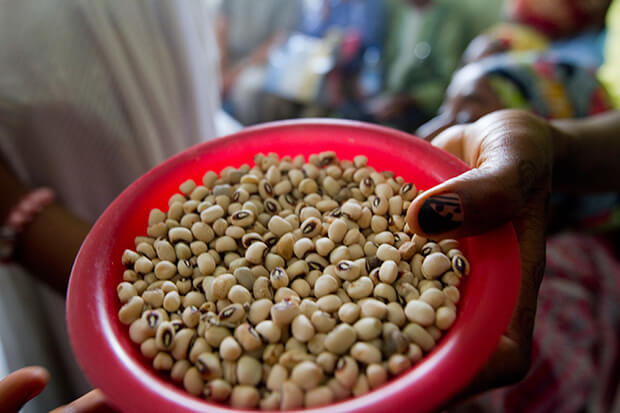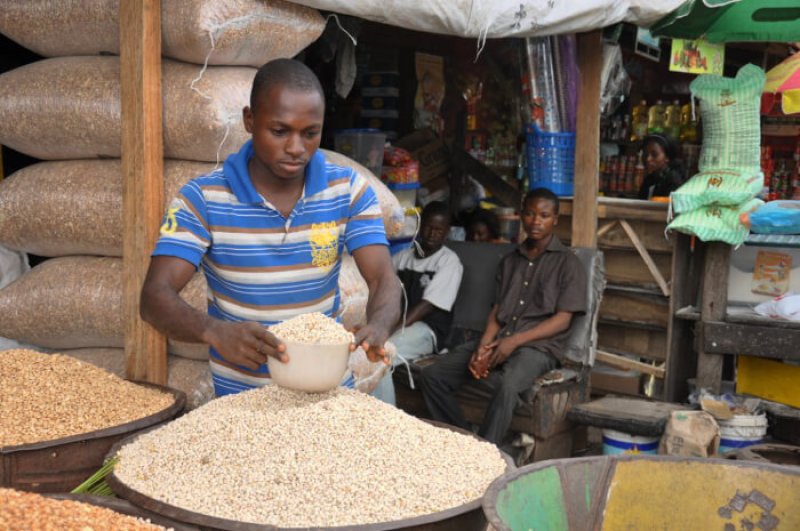Concerns and style of opposition are similar to those that greeted genetically modified cotton when it was approved in 2016. Critics argue that the GM cowpea contains the Cry1AB gene developed by Monsanto, and this technology to them is obsolete and long jettisoned from countries where it has been introduced.
They say that in South Africa, cultivation of Monsanto’s GM maize containing the same transgene was banned because of massive pest resistance and infestations. Additionally, they argue that the GM cowpea risks contaminating local varieties and exposing Nigerians to avoidable risks. For them, the pesticide reduction and 20 percent yield improvements promised by the new seed do not offset what they see as the potential for new health risks.
They expressed shock that Nigeria approved the new crop knowing that current socio-cultural settings make it impossible to guarantee citizens the right of choice, once the crop makes it to market. They’ve now taken their concerns to the National Varietal Release and Registration Committee (NVRRC), in a last-ditch effort to derail the new seed.
They were unable to convince the National Biosafety Management Agency (NBMA) – the national authority in charge of biosafety affairs – to block the crop. Now they want the NVRRC to refuse to register the product.

According to Nnimmo Bassey, the director of Health of Mother Earth Foundation (HOMEF) and frontline anti-GMO leader, “the speed with which Nigeria is permitting GMOs is highly suspicious and offers no assurance that the government is concerned about safety and the preservation of our biodiversity.”
Crop proponents, however, see it in a decidedly different light. They argue that arguments against the new cowpea are based on opinions and not science.
Rufus Ebegba, director general and chief executive officer of the NBMA, urged critics to remember that his agency was not established to stop GMOs, but rather to ensure they are safe to the environment and human health.
Every new technology is bound to face suspicion and concerns. But Ebegba said Nigeria shouldn’t let fear keep it from taking advantage of new technologies that could benefit current and future generations, particularly when they are safety measures put in place by the government. Said Ebegba:
Despite the odds, the NBMA has continued to discharge its duties to the people of Nigeria while meeting the mandate of government with knowledge and courage.
Nigeria is the world’s largest supplier of cowpea, producing 61 percent of Africa’s output and 58 percent of the world’s production. Still, these figures don’t reflect the reality in local demand. There is a consumption deficit of half a million tonnes, prompting imports from neighboring countries like Cameroun and Burkina Faso.
It is important to note that all of that production has been achieved only through extensive applications of pesticides aimed, in part, at battling the devastating bean pod borer. Farmers are forced to spend money on eight, or even nine, pesticide applications each planting cycle. Yet, they still lose 80 percent of their yields to the voracious insect.
Previous efforts to conventionally breed resistance to the insect have yielded no positive results. The failure of those efforts prompted researchers to turn to genetic modification for potential solutions.
Usually, scientific judgements are decided in laboratories under the watchful eyes of scientists. But this narrative seems to be shifting with the rise of genetic engineering and a growing opposition to it. Environmental activists and some citizens continue to express displeasure with the process leading to commercialization of GM crops. This is a situation many scientists are not comfortable with.
In 2016, after the approval of BT cotton, anti-GMO activists sued the government of Nigeria in court, losing in 2018 on technical reasons. They have threatened to sue again, expanding the group of defendants to include all proponents of GMOs. They accuse them of supporting foreign business entities to harm Nigerians because of commercial interests.
These may be legitimate concerns, though Nigerians should ensure that national interest and not conspiracy theories drive their motives.
Good genetic engineering must leave room for doubt. The precautionary principle is the bedrock of biosafety regulation. It simply means that where there is doubt, caution should be applied.
Nevertheless, the evolution of GMOs and public resistance is a common phenomenon. Many believe that if those charged with the responsibility of ensuring safety, transparency and educating the public on the new agricultural technique and its benefits to society, diligently carry out their assignment, even in the court of law justice will prevail and vindicate this food crop, science and Nigerians.
Opuah Abeikwen is a co-initiator of Science Cafe Nigeria and a 2016 Cornell Alliance for Science Global Fellow. Follow him on Twitter @Opuahabeikwen































